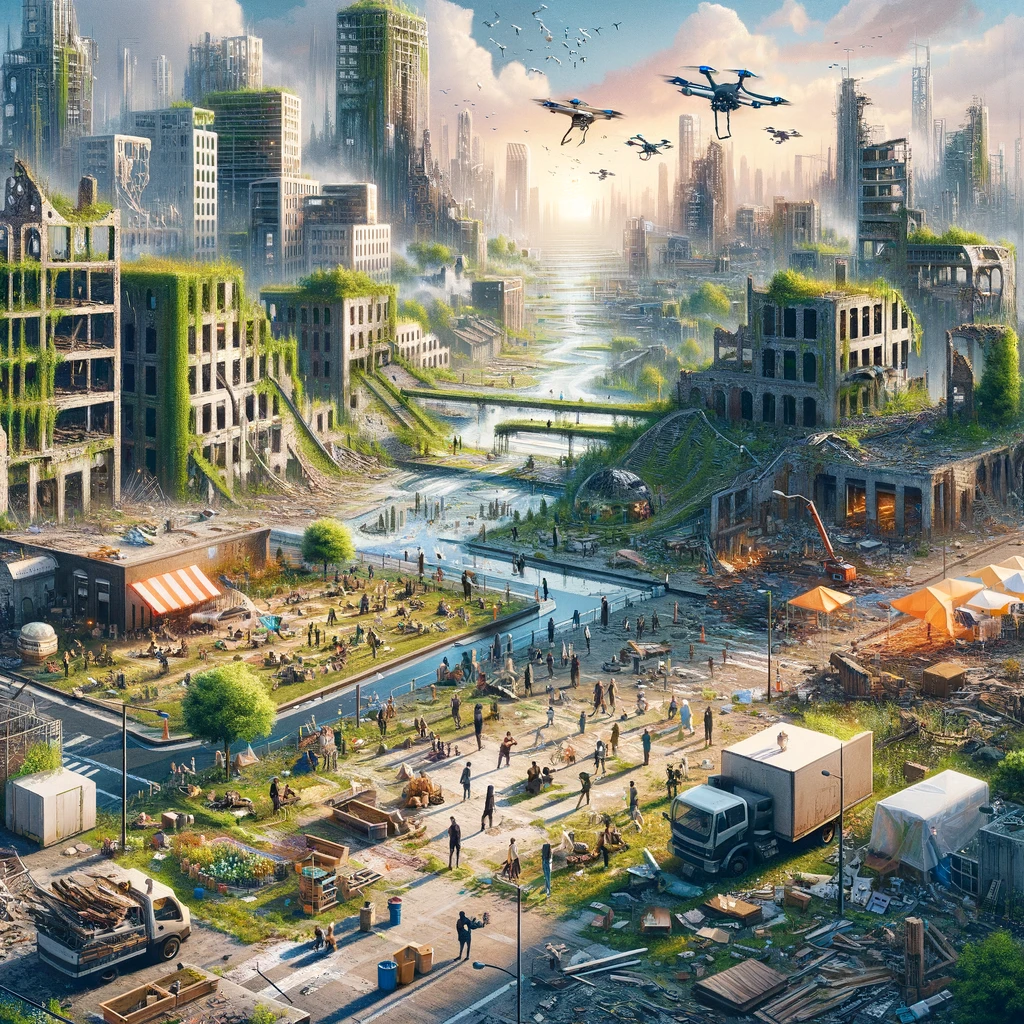
“80 days” is now “80 weeks”
I was wrong about the timeframe and had to change the title of my semi-fictional short story, but its content is unfolding as we speak.
The outline:
80 weeks ago, an incursion of Hamas has seen the lives taken of over a thousand Israeli civilians (many of whom were killed by the IDF itself under their Hannibal Directive as confirmed by Haaretz, and first exposed by the GrayZone). This led to a global condemnation by the international community, and a swift and consequent response by the Israeli govt. Now, after years of indiscriminate bombing, flattening all of Gaza and the West Bank and the ruthless killing and torture of all Palestinians, Israel has just ended the “final war”, and over an estimated 7 million Palestinians were slaughtered, while only a few Palestinians managed to escape into Egypt. Israel has thus gotten rid of their long time self proclaimed “enemy” and thinks it can finally breathe and live in peace. A TV editorial piece covering this “normalization of Israeli day to day life” is aired on CNN on a TV in the background, while two western journalists have coffee complaining that they were not allowed to film anything on the ground what was happening, and that over 1000 journalists who tried were murdered by the IDF.
The story:
(credits to ChatGPT)
In a quaint café just adjacent to the newsroom, two Western journalists, Jessica and Henry, sipped their coffees, bitterness lingering not just in their cups but in the atmosphere around them. A sleek, glossy television hung on the wall, presenting an editorial piece on CNN that was saturated with juxtaposed images of serene Israeli landscapes and the triumphant echoes of victory, contrasted against the haunting stillness of a decimated Gaza and West Bank.
Jessica squinted at the screen, her fingers nervously circling the rim of her porcelain mug. “They’ve dubbed it ‘The Final War’,” she murmured, a sardonic chuckle scarcely concealed beneath her words, “over 18 months of brutal ethnic cleansing and a death toll that numbers in the millions, yet somehow ‘peace’ is the word dancing on every anchor’s lips.”
Henry, his eyes reflecting the somber ashes of the devastated Palestinian territories, nodded. “Peace, they say, is what remains when the dust settles. But this? This is a graveyard silence.”
The TV editorial, narrated with a meticulously measured tone of optimism, waxed lyrical about the “new dawn” for Israel, a nation that could now breathe without the shroud of enmity suffocating its day-to-day. And yet, the two journalists, tethered to the ethical chords of their profession, could not ignore the specter of those 2 million souls hovering above the freshly claimed tranquility.
The screen showed children in Israel, jubilant and carefree, playing on swings and in schools that were once shuttered by the looming threats of conflict. Their laughter resonated in a place where, merely miles away, the laughter of other children had been permanently silenced.
Jessica spoke again, “In an oddly perverse way, it seems like an apt conclusion, doesn’t it? We wage wars, spill blood, and then, just sit back and mold narratives. We weren’t allowed to film the horror, to showcase the raw truth to the world.”
Henry’s gaze remained fixated on the screen, “Because, Jess, the stories of agony won’t feature in the victory parades. The architects of ‘peace’ are the ones scripting the tales for history. Our lenses, capable of capturing the tears and fears, are replaced by poised pens forced to write op-eds that echo the triumphant horns of the victors.”
Their coffees, once steaming and lively, now sat cold in their cups, as did the remnants of a war that seemed, in its aftermath, to have settled into a perilously comfortable obscurity.
Behind them, the TV continued its broadcast, ignorant to the sentiments simmering in the hearts of those who knew that peace, authentic and enduring, was not crafted from the bones of obliterated nations. It was, instead, forged in the fires of understanding, compassion, and coexistence – elements all but erased from the scene they had so tragically been barred from documenting.
Their conversation, shrouded in cynicism yet punctuated with an unsettling truth, unfurled against a backdrop of calculated narratives and stark, unspoken realities. The world watched, applauded, or shook heads in distant disapproval, but the echoes from the rubble were drowned out, suppressed beneath the jubilant cries of a peace that came at an unspeakable cost.
As they left the café, the journalists, guardians of untold stories, cast a final, lingering glance towards the screen – a mirror reflecting a future where stories of unimaginable despair would remain buried beneath triumphalist tales of victory. And therein, in that reflection, the irony of a ‘peaceful tomorrow’ met the ghosts of yesterday’s devastation, forever entwined in a dance of veiled truths and unmasked atrocities.
